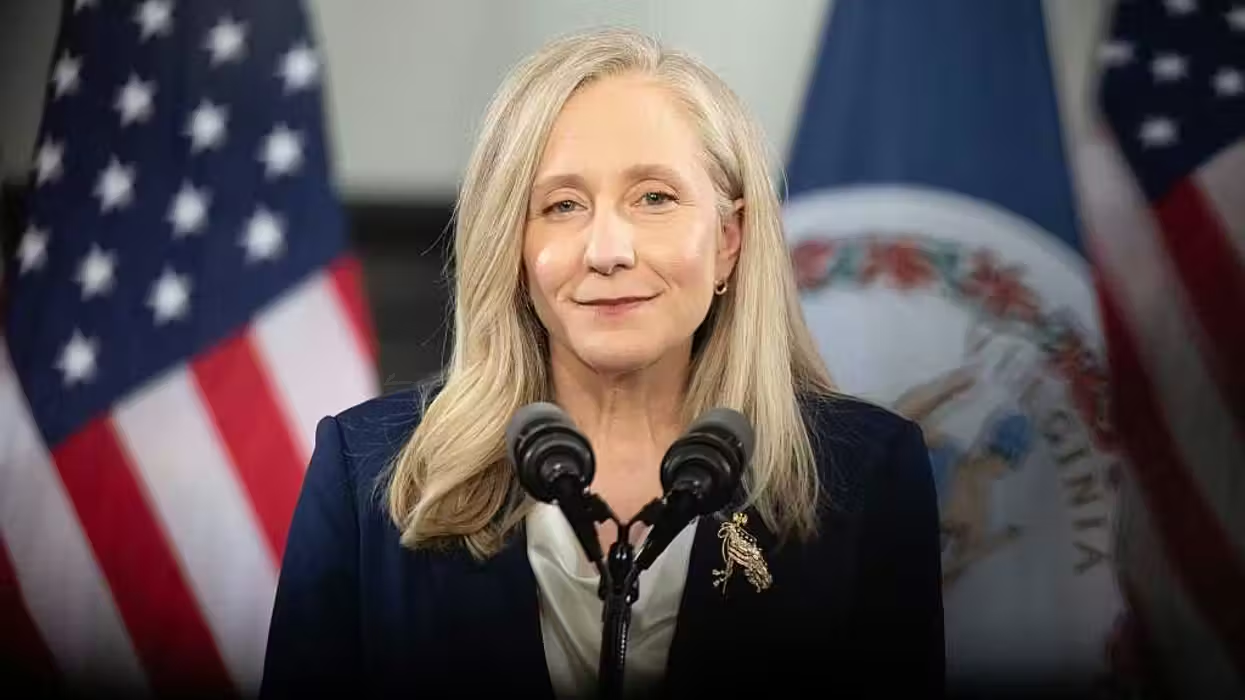
© 2026 Blaze Media LLC. All rights reserved.
"A woman's right to access an abortion is rooted in fundamental human rights, including the right to life."
Sandra Fluke's appearances on-camera thus far, as well as Rush Limbaugh's well publicized reaction to her Congressional testimony, have turned her into a martyr for the Left. But as The Blaze has reported, holes still remain in her story. For instance, Fluke is really 30-years-old (not the 23 that has been reported), and specifically went to Georgetown to fight their contraception policy - far from the innocent, wide-eyed victim she's tried to portray herself to be.
But perhaps more revealing than what Fluke has publicly said is what she has declined to say. Her testimony before Congress, for instance, included precisely zero references to recreational sex or to abortion. Instead, Fluke would have her audience believe she's only interested in non-sexual reasons for needing contraceptive pills - such as treating ovarian cancer. According to one study, the number of people to whom this applies is about 14 percent of all contraceptive users.
But is this really all Fluke's agenda is? Based on the affiliations she herself has cited, that question may be more complicated. Near the beginning of her testimony, Fluke said the following (emphasis added):
My name is Sandra Fluke, and I’m a third year student at Georgetown Law, a Jesuit school. I’m also a past president of Georgetown Law Students for Reproductive Justice or LSRJ. I’d like to acknowledge my fellow LSRJ members and allies and all of the student activists with us and thank them for being here today.
So if Fluke has these sorts of ties to an organization and mentions them by name for the purposes of appreciation, readers will probably assume she supports their agenda.
But what is that agenda? For that matter, how is "reproductive justice" defined? A quick look at the Law Students for Reproductive Justice's website provides the answer:
Perhaps the most relevant pull quote is as follows:
Reproductive Justice (RJ) represents an emerging framework, an analytical tool, a movement building strategy, and a desired outcome. RJ advocates concentrate on the realization of therights to have a child, to not have a child, and to birth and parent the children with
dignity. More specifically, we aim to construct legally tenable, realistically accessible avenues for
informed, consensual, unobstructed decision-making about education, sex, contraception,
sterilization, abortion, procreation, birthing, and parenting.
There is no mention of treatments for ovarian cancer, or cysts, or any other disorder that would involve contraceptive medicine being used for non-contraceptive purposes. The inclusion of abortion is also a recurring theme. The Blaze uncovered one video released jointly by self-identified LSRJ alumni and the Center for Reproductive Rights that refers to abortion as a "human right" and is essentially a primer for activists on how to attack anti-abortion legislation using international human rights law. The video was released with participation from a former President of Fordham University's chapter of LSRJ (also a Catholic university) and was made during the same time that Fluke was President of Georgetown's chapter. It also foreshadows current events eerily in some places (full quotes with emphasis added after the video):
A woman's right to access an abortion, like her other reproductive rights, is rooted in fundamental human rights, including the right to life, the right to health, the right to dignity, the right to equality and non-discrimination, the right to information, the right to self-determination, the right to education, the right to privacy, and the freedom from torture, cruel, inhuman and degrading treatment. [...]Abortion bans are a prime example of discrimination against women under this framework, or at least that's what we would argue, because only women will ever be affected by restrictions on abortion, because only women will ever get pregnant.[...]
So laws like the Hyde amendment, which withholds Federal funding for Medicaid abortions, except in cases of rape, incest, or where a woman's life is endangered, have a disproportionate effect on low-income women and women of color, and so we would argue they constitute discrimination. [...]
The Supreme Court has held that the Constitution doesn't require the government to fund all medical services through [Medicare and Medicaid]...The Court refuses to find a constitutional obligation to treat women on Medicaid, I wouldn't say fairly. [...]
We go around and we do interviews with people and we try to elicit or find out ways in which they have had their reproductive rights violated, and then we apply a legal analysis that shows the way those reproductive rights violations are also human rights violations. And this is sort of useful not only because I think those stories are very humanizing, but also because...it helps us move the conversation.[...]
Abortion providers are really being targeted for informal harassment and even assault and formal legislative discrimination because of the work they do, because they help women access reproductive health care services, and access abortion services, which means they're really being attacked for helping women exercise their human rights. [...]
We're currently working on a third fact-finding about access to care in communities where the only health care provider is a Catholic hospital, or the only existing health care provider is a Catholic hospital, or merges with a Catholic hospital and becomes a Catholic hospital, and what kinds of restrictions arise in those situations.
The video also mentions reports that try to portray abortion providers as "human rights defenders." One of the women in the video calls the Hyde amendment a "human rights violation" directly. In other words, if Fluke is anything like the organization she proudly represents, then her speech before Congress had little to nothing to do with anything but abortion and contraception specifically being used in a reproductive context.
Want to leave a tip?
We answer to you. Help keep our content free of advertisers and big tech censorship by leaving a tip today.
Want to join the conversation?
Already a subscriber?
more stories
Sign up for the Blaze newsletter
By signing up, you agree to our Privacy Policy and Terms of Use, and agree to receive content that may sometimes include advertisements. You may opt out at any time.
Related Content
© 2026 Blaze Media LLC. All rights reserved.
Get the stories that matter most delivered directly to your inbox.
By signing up, you agree to our Privacy Policy and Terms of Use, and agree to receive content that may sometimes include advertisements. You may opt out at any time.







